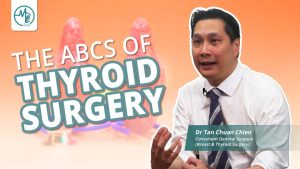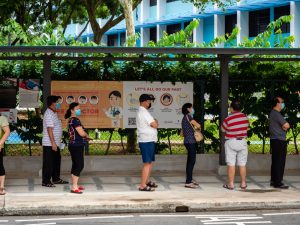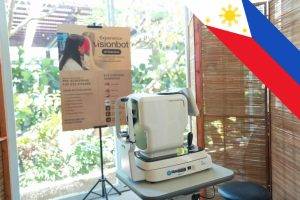NUS Innovates Undergraduate Healthcare Training to Align with ‘Healthier SG’ Vision
The National University of Singapore (NUS) has unveiled transformative changes to undergraduate healthcare programmes, aimed at moulding professionals.
This innovative change has been introduced to develop future-ready health professionals, positioning them to adapt and excel in the dynamic landscape of Singapore’s healthcare system. Central to this transformation is the nation’s ‘Healthier SG’ vision – an ambitious project that advocates for a seamlessly integrated and preventive care approach.
The ‘Healthier SG’ Vision
This ‘Healthier SG’ vision is not just a transformative strategy but a fundamental restructuring of the healthcare system. The main thrust of this vision is the advocacy of ageing in place, supported by cutting-edge technology and analytics. Achieving this aspiration necessitates a collaborative effort, uniting doctors, nurses, dentists, and pharmacists in the shared goal of providing holistic care.
NUS aspires for its graduates – be it doctors, nurses, dentists, or pharmacists – to be at the forefront of this shift. Their education will arm them not only with clinical prowess, but also with skills to offer integrated care. By leveraging AI and data analytics, they will enhance patient-centric decisions.
Interdisciplinary Curriculum: The Future of Healthcare Education
From August 2023, NUS debuts an interdisciplinary curriculum for undergraduates in key health faculties. Tailored to echo the ‘Healthier SG’ objectives, the syllabus will mould approximately 870 students over five specifically conceived courses. These students, representing the fields of Dentistry, Medicine, Nursing, and Pharmacy, will partake in this curriculum in the initial two years of their degree, supplementing their primary programmes.
Additional initiatives include an AI and Biomedical Informatics Minor for Medicine students, preparing them for a digitally advanced medical landscape. Moreover, a novel Minor in Integrative Health will be available for students across NUS. In doing so, they will acquaint them with contemporary healthcare systems’ intricacies.
Commenting on the path-breaking initiatives, Professor Aaron Thean, NUS Deputy President (Academic Affairs) and Provost, remarked, “This latest effort to imbue interdisciplinary perspectives in healthcare education aims to better prepare our graduates for enriching careers in a fast-changing world. As Singapore’s healthcare needs evolve rapidly, an interdisciplinary approach becomes increasingly relevant. We believe that this is critical to prepare our students to be future-ready, contributing positively to quality health services for Singaporeans.”
Professor Chong Yap Seng, Dean of NUS Yong Loo Lin School of Medicine, echoed this perspective, emphasising that healthcare education must break traditional siloes and incorporate diverse disciplines to ensure a holistic, patient-centric approach.
Pioneering Approaches in Healthcare Education
This two-year curriculum has been meticulously curated to draw from academic disciplines such as Dentistry, Medicine, Nursing, and Pharmacy. Comprising five distinct courses, the curriculum aims to imbue students with a deep understanding of social issues. These issues impact health, fostering skills such as teamwork, communication, and digital literacy.
A highlight of this curriculum is the ‘Social and Behavioural Determinants of Health’ segment. It emphasises the nonmedical factors influencing individual health. The curriculum also includes the ‘Longitudinal Patient Experience’, a unique experiential learning segment. Ms. Yunn Honey Aye Kyaw, a Phase II student at NUS Medicine, encapsulated her experience, “This course highlighted the multi-faceted approach to health, emphasising the significance of social and environmental factors. This understanding will be crucial in my future role as a doctor.”
Minor in Biomedical Informatics
A blend of healthcare, data science, AI, and IT, this Minor is aimed at arming medical students with cutting-edge skills required for the future of healthcare. It covers a gamut of competencies, from large language model training and data management to evidence-based decision-making. Every freshman enrolled in the 2023/2024 academic year will undertake this minor as part of their undergraduate study.
Minor in Integrative Health
Open to students from non-healthcare faculties, this Minor dives deep into the facets of optimal health and wellness. It integrates various disciplines like healthcare technologies, environmental design, and psychological care. With an interdisciplinary approach at its core, this Minor is designed in collaboration with various academic units and industry experts.
The transformative healthcare education approach by NUS marks a pivotal moment in Singapore’s journey to actualising its ‘Healthier SG’ vision. The intertwining of diverse disciplines will pave the way for an era of all-encompassing patient care. As NUS spearheads these changes, the future healthcare professionals will undoubtedly be better equipped to meet the ever-evolving needs of the nation.












